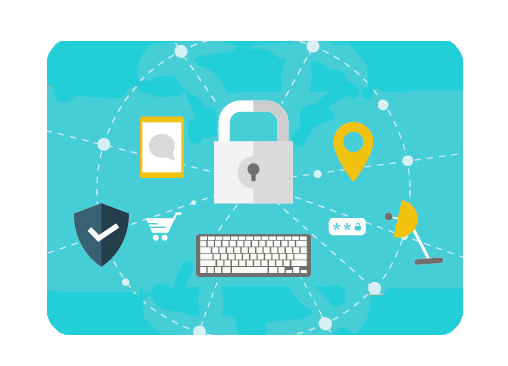Introduction to Cyber Security
Cyber security refers to the protection of computer systems, networks, and digital information from unauthorized access and attacks. It involves implementing measures and strategies to prevent breaches, detect threats, and respond to incidents. With the increasing reliance on technology in our daily lives, cyber security has become crucial in safeguarding personal and sensitive data. By understanding the basics of cyber security, individuals can take proactive steps to protect themselves and contribute to a safer online environment.
What is Cyber Security?
Cyber security is the practice of protecting computer systems, networks, and digital data from unauthorized access and attacks. It involves implementing measures and strategies to prevent, detect, and respond to cyber threats. With the increasing reliance on technology, cyber security has become crucial in safeguarding personal and sensitive information.
Why is Cyber Security important?
Cyber Security is important because it helps protect sensitive information from unauthorized access and attacks. With the increasing reliance on technology, cyber threats have become more prevalent and sophisticated. Implementing effective cyber security measures helps safeguard personal data, financial information, and intellectual property. It also ensures the continuity of business operations and helps maintain trust in online transactions and systems. Without robust cyber security measures, individuals and organizations are vulnerable to data breaches, financial loss, and reputational damage. It is crucial to prioritize cyber security to mitigate these risks and protect digital assets.
Common Cyber Threats
As we navigate the digital world, it is essential to be aware of common cyber threats that can compromise our online security. Some of these threats include malware, which refers to malicious software designed to infiltrate and damage computer systems. Phishing attacks are another common threat where cybercriminals pose as trustworthy entities to trick individuals into revealing sensitive information. By understanding these threats, we can better protect ourselves and take proactive measures to prevent cyber attacks.
Malware
Malware refers to malicious software that can infiltrate and damage computer systems. It includes viruses, worms, ransomware, and spyware, among others. Malware can be downloaded unknowingly through infected email attachments, malicious websites, or by clicking on suspicious links. It can cause data loss, financial loss, and compromise personal information. It is crucial to have effective antivirus software installed and regularly update it to protect against malware. Additionally, exercising caution when downloading files or clicking on links and practicing safe browsing habits can help prevent malware infections.
Phishing attacks
Phishing attacks are a common tactic used by cybercriminals to trick individuals into sharing sensitive information such as passwords, credit card details, or social security numbers. They typically come in the form of deceptive emails, text messages, or website links that appear to be from a legitimate source. It is important to be cautious and never click on suspicious links or provide personal information without verifying the authenticity of the request.
Types of Cyber Security Measures
There are several types of cyber security measures that can help protect against various threats. Two common types include:
Firewalls
A firewall is a crucial cybersecurity measure that acts as a barrier between my trusted internal network and external networks. It monitors and controls incoming and outgoing network traffic, preventing unauthorized access. This helps protect my devices and data from potential threats, such as hackers or malware. Firewalls are essential for maintaining a secure online environment.
Antivirus software
Antivirus software is an essential tool for protecting my computer and devices from malware. It scans for and removes viruses, worms, Trojans, and other malicious software that could harm my system. Antivirus software also provides real-time monitoring, web protection, and regular updates to ensure my devices stay safe from the latest threats. It’s important to choose a reputable antivirus program and keep it up to date for effective cybersecurity.
Best Practices for Online Safety
When it comes to online safety, there are a few key best practices that everyone should follow to protect themselves from cyber threats. These practices include:
- Creating strong passwords: Use a combination of letters, numbers, and symbols to create a unique and strong password for each online account.
- Regular software updates: Keep your operating system and software up to date with the latest security patches and updates. These updates often include fixes for known vulnerabilities.
- Being cautious of suspicious emails and links: Avoid clicking on unknown links or opening attachments from unfamiliar sources. These could be phishing attempts to steal your personal information.
- Using secure Wi-Fi networks: When connecting to Wi-Fi networks, make sure they are secure and password protected. Avoid using public Wi-Fi networks for sensitive transactions or sharing personal information.
- Being mindful of personal information: Avoid sharing sensitive information, such as your social security number or financial details, unless it’s necessary and with trusted sources.
By following these best practices, you can enhance your online safety and reduce the risk of falling victim to cyber threats.
Strong passwords
Creating strong passwords is essential for maintaining online security. I recommend using a combination of upper and lowercase letters, numbers, and special characters. Avoid using easily guessable information such as your name or birthdate. Additionally, it’s important to have unique passwords for each online account to prevent one compromised password from affecting all accounts. Regularly changing your passwords is also a good practice to ensure continued security.
Regular software updates
Regular software updates are crucial for maintaining online security. By keeping your operating system, web browsers, and other software up to date, you ensure that any security vulnerabilities are patched and repaired. Updates also include important bug fixes and enhancements that improve the overall performance and functionality of your software. It’s important to regularly check for updates and install them promptly to stay protected.
Protecting Personal Data
Encryption plays a crucial role in protecting personal data from unauthorized access. By encrypting sensitive information, it becomes scrambled and unreadable to anyone without the decryption key. It ensures that even if your data is intercepted, it remains secure. Additionally, using two-factor authentication adds an extra layer of protection by requiring a second form of verification, such as a code sent to your phone, to access your accounts.
Encryption
Encryption is a crucial tool in keeping personal data safe from unauthorized access. It works by converting information into a scrambled form that can only be read with a decryption key. This ensures that even if someone intercepts my data, they won’t be able to decipher it without the key. It’s like putting my information in a locked box, where only I have the key to unlock it.
Two-factor authentication
Two-factor authentication is an additional layer of security that I can enable to protect my online accounts. It requires me to provide two pieces of information to prove my identity – usually something I know (like a password) and something I have (like a verification code sent to my phone). This adds an extra level of protection, as even if someone knows my password, they won’t be able to access my account without the second factor. It’s like having a double lock on my digital door. I should enable two-factor authentication wherever possible to enhance the security of my online accounts.
In conclusion, cyber security is a crucial aspect of our digital lives. It is important to be aware of common threats, implement security measures, and take steps to protect personal data. By following best practices and staying informed, we can enhance our online safety and reduce the risk of cyber attacks. Remember, cyber security is a continuous learning process, and it is essential to stay updated with the latest trends and technologies to stay one step ahead of potential threats.
Frequently Asked Questions
- What is cyber security?
- Cyber security refers to the practice of protecting computers, servers, mobile devices, electronic systems, networks, and data from digital attacks.
- Why is cyber security important?
- In today’s digital age, our lives revolve around the internet. Cyber security ensures the protection of our personal data from cyber threats, making it a crucial aspect of our digital lives.
- How can I start learning cyber security?
- Start with understanding the basics of cyber security, follow cyber security news, learn from online courses, and get hands-on experience through labs and exercises.
- What are some recommended cyber security courses for beginners?
- There are numerous online platforms offering cyber security courses for beginners. Some of these platforms include Coursera, Udemy, and Khan Academy.
- What are some beginner-friendly cyber security certifications?
- There are several certifications that are beginner-friendly, such as CompTIA Security+, Certified Information Systems Security Professional (CISSP), and Certified Information Security Manager (CISM).
- Where can I find resources to learn cyber security?
- There are numerous resources available online to help beginners learn cyber security. These include blogs, websites, books, and online communities.





